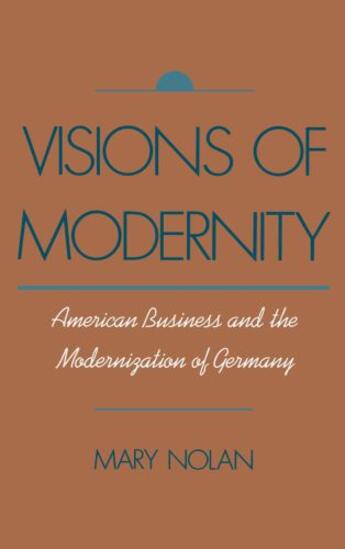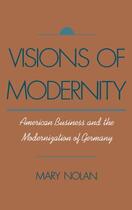Résumé:
In much the same way that Japan has become the focus of contemporary American discussion about industrial restructuring, Germans in the economic reform in terms of Americanism and Fordism, seeing in the United States an intriguing vision for a revitalized economy and a new social order.
... Voir plus
In much the same way that Japan has become the focus of contemporary American discussion about industrial restructuring, Germans in the economic reform in terms of Americanism and Fordism, seeing in the United States an intriguing vision for a revitalized economy and a new social order.
During the 1920s, Germans were fascinated by American economic success and its quintessential symbols, Henry Ford and his automobile factories. Mary Nolan's book explores the contradictory ways in which trade unionists and industrialists, engineers and politicians, educators and social workers explained American economic success, envisioned a more efficient or "rationalized" economic system for Germany, and anguished over the social and cultural costs of adopting the American version of modernity. These debates about Americanism and Fordism deeply shaped German perceptions of what was economically and socially possible and desirable in terms of technology and work, family and gender relations, consumption and culture. Nolan examines efforts to transform production and consumption, factories and homes, and argues that economic Americanism was implemented ambivalently and incompletely, producing, in the end, neither prosperity nor political stability.
Vision of Modernity will appeal not only to scholars of German History and those interested in European social and working-class history, but also to industrial sociologists and business scholars.
Donner votre avis















